Thinking and Living Well
The center is leading an integrated conversation that has been unfolding for thousands of years. Therefore, it is imperative that students understand the varying streams of intellectual thought and how we arrived at this moment as they seek to live well in our age.
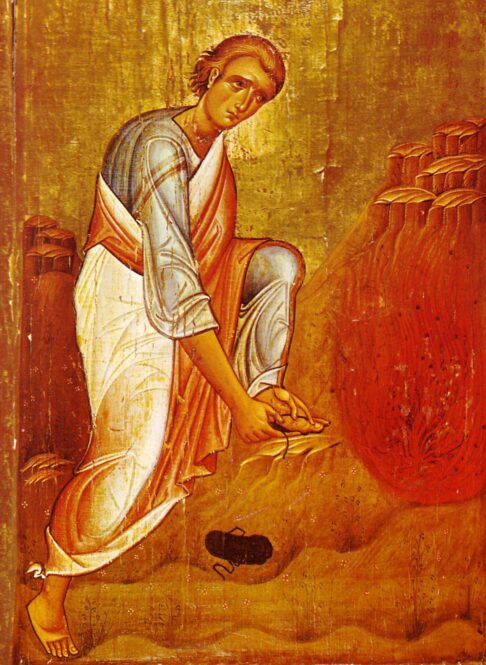
Old Testament
What is the meaning of life? The Old Testament, or the Tanakh, has influenced religious, political, and philosophical thought for over two millennia. It is the backbone of the three major monotheistic traditions (Judaism, Christianity, Islam) and a cornerstone of the cosmic imagination of the West. It has been used to justify everything from the inviolable dignity of every human being to acts of political violence. In short, it is a collection of texts that must be wrestled with. Hence, in this course, students will inquire about how the Old Testament expresses God’s relationship with humanity, with special attention to the roles of “covenant” and “theophany.” Such engagement will include exposure to the different texts of the Old Testament, the nature of exegesis, the philosophical problems of meaning, suffering, and divine encounter, as well as an introduction to the basics of logic and literary analysis. By the end of the course, students will develop the skills to critically engage the Old Testament as texts of historical, literary, philosophical, theological, and religious value.
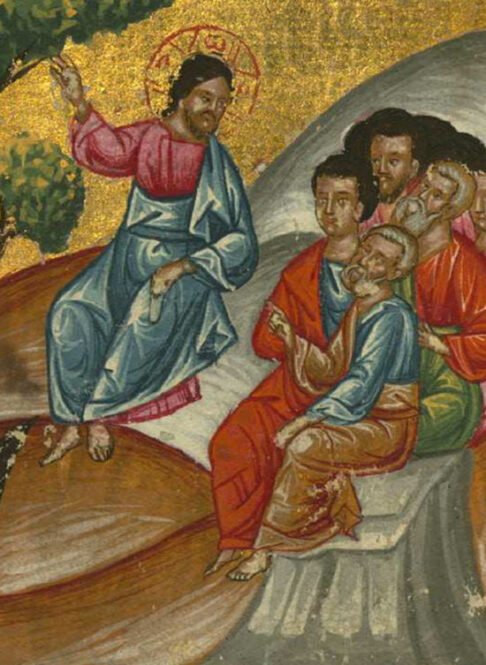
New Testament
This course aims to explore the major events, figures, ideas, and themes of the New Testament with a special focus on the life, teaching, and passion of Jesus Christ as depicted in the four Gospels. In particular, the course will engage episodes such as the Sermon on the Mount and the last week of Christ’s life, also known as Holy Week. To aid in our analysis, students will read two Christian classics of the 20th century: C.S. Lewis’ Mere Christianity and The Great Divorce, which will help introduce them to central themes of Christian thought regarding theological anthropology, ethics, and eschatology as it relates to the two central mysteries of Christ and the Trinity. The goal of the course is to foster hospitable conversation that pushes students to think deeply, speak clearly, and act charitably toward the sacred texts of one of the most influential religious movements in western civilization: Christianity.
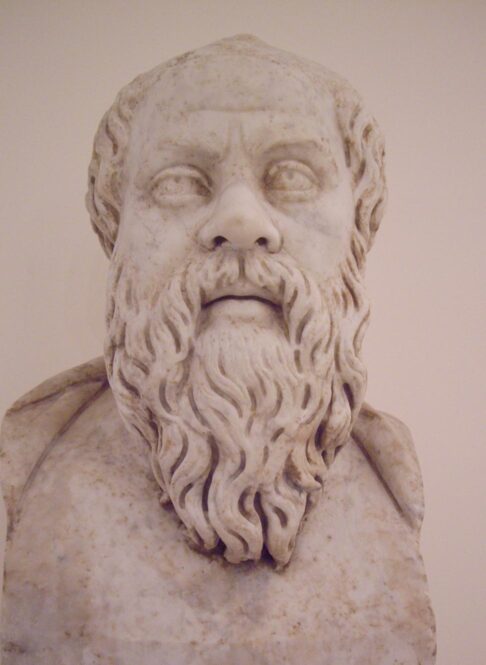
Moral Philosophy
What is the criterion for right and wrong? Can an act be wrong if it has no bad consequences? How should we proceed if cultures clash? Can Divine fiat dictate what is right or wrong? Is everyone inherently selfish? Do we have any moral duties or obligations? Is there an objective human good? In order to answer questions like these, this course will examine three major approaches to ethics (utilitarianism, deontology, and eudaimonism) as they arise in three philosophers (Mill, Kant, and Aristotle). However, if we are to engage in the project of ethics, we first have to consider positions that undermine conversation (divine command theory, relativism, egoism) and see how we might move beyond them. Throughout the semester, we will apply these theories to real-life examples and puzzling hypotheticals (i.e. applied ethics) in an attempt to consider the possibility of ethical life in a pluralistic world.
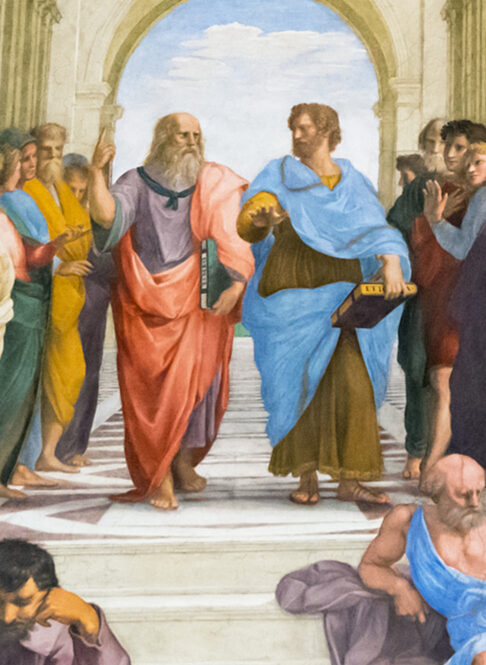
Ancient Philosophy
This course will examine the foundations of the western intellectual tradition from Plato to Neoplatonism. We will start our journey with the Pre-Socratics and their attempt to find an ultimate reason (logos) underlying the cosmos. Once initial problems are raised with the Pre-Socratics, we will turn to Plato’s dialogues and consider topics in Plato’s metaphysics and epistemology, such as the theory of forms, the immortality of the soul, the theory of recollection, the allegory of the cave, and the nature of love and beauty in the philosophical life. Next, we turn to Plato’s greatest student, Aristotle, where we will engage his theories on the soul, physical and metaphysical causation, and his famous argument for the Unmoved Mover. Jumping several hundred years later, we turn to developments in Roman and Greek philosophy, such as the debates between Stoics and Epicureans, where we will reflect on the nature of the gods and the good life. Finally, we arrive at the great Hellenistic synthesis found in Plotinus, the first “Neoplatonist,” where we will tackle the nature of God, virtue, and how the soul might take flight and ascend “alone to the alone.”
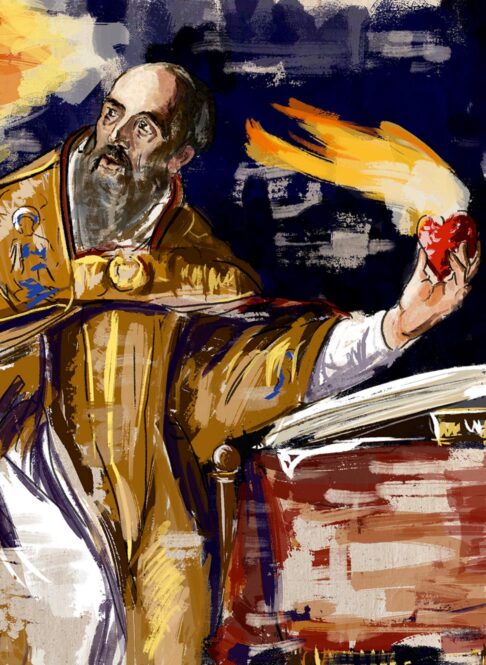
Late-Antique Philosophy
St. Augustine has been credited and blamed for almost every aspect of Western Civilization. Regardless of one’s feelings about him, his works cast a long shadow over the history of literature, religion, philosophy, and theology. In this course, students will be introduced to late-antique philosophy and theology through the works of Augustine, primarily looking at one of his most famous works, The Confessions. In doing so, students will encounter a number of philosophical questions—what is the relationship between faith and reason? What is the purpose of education? Is it possible to want bad things because they are bad? Is knowledge possible? Can immaterial things exist? Does God exist? What is God like? How could God exist with so much evil in the world? What does it mean to be free? Are we morally responsible for what happens in our dreams? What is time? What does it mean to read a text “literally”? Therefore, students will gain familiarity with a number of major fields of study in the disciplines of philosophy and theology in late-antiquity, such as ethics, epistemology, ontology, metaphysics, Christology, soteriology, and biblical exegesis, among others, synthesized into a robust introduction to philosophical theology through one of its pivotal players: Augustine of Hippo.

Political Philosophy
This course is principally concerned with three crucial questions: what is human nature, how does human nature contribute to the origin and aim of society, and what is the ideal state of said society? In order to answer these questions, students will begin by considering the ancient political tradition typified by Plato, Aristotle, and Cicero, with a focus on the themes of justice, friendship, and natural law. After which, students will turn to medieval works, such as Augustine and Aquinas, observing the relationship between politics and philosophy, church and state, the nature of kingship, and papal supremacy. Students then transition into two different strands of political thought that emerged in the modern period: progressivism (Hobbes, Locke, Rousseau) and conservatism (Hume, Burke, De Maistre), the former characterized by social contract theory, and the latter by the centrality of authority and tradition. Throughout the semester, students will take their considerations and analyze issues in American political life, critically engaging and evaluating the underlying values of the conversations.
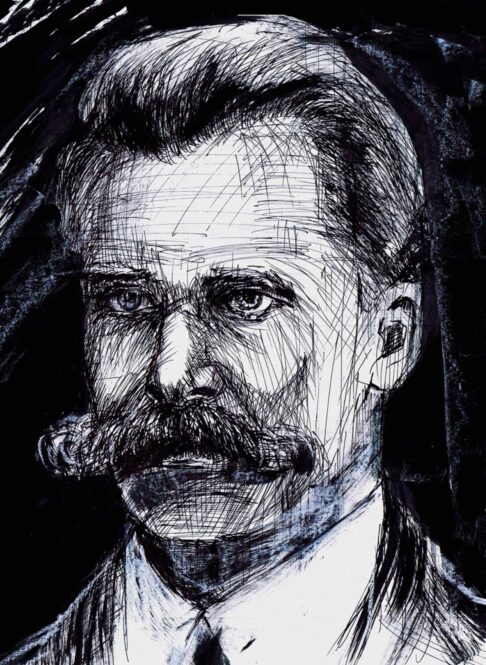
Modern Philosophy
This course begins with a brief history of ideas starting with Augustine through to the Enlightenment, typified by the shift from Aristotelian philosophy to mechanical philosophy and atomism. After which, it surveys major ideas in early modern philosophy, such as Descartes’ cogito and debates between empiricism, rationalism, skepticism and idealism as found in Hobbes, Locke, Leibniz, Spinoza, Hume, and Berkeley, concluding with the attempted synthesis of Immanauel Kant. Students will see the Enlightenment as an attempt to reimagine all aspects of philosophy, from ideal political structures, what it means to be good, what is fundamentally real, the nature of God and his relationship to the world, to the question of how morality relates to religious belief. Turning to late modern philosophy, Kant finds a challenger in the German Idealist philosopher Hegel, who argues for a progressive understanding of history and religion that is driven by a process of dialectic. It is the legacy of Hegel’s philosophy that will dominate the 19th century, which gave birth to the greatest critics of metaphysics. Thinkers like Feuerbach, Marx, Comte, and Nietzsche, engaged in what Paul Ricoeur characterized as “hermeneutics of suspicion.” They attempted to explain reality by appealing to underlying social, political, moral, and psychological functions. The culmination of that suspicion is found in Marx’s dialectical-material theory of communism and Nietzsche’s proclamation of the ‘death of God,’ setting the stage for the upheavals of the 20th century. Hence, students will enter into this ‘experiment’ that is modern philosophy and decide for themselves whether that experiment was indeed successful, or whether we ought to go in a different direction.
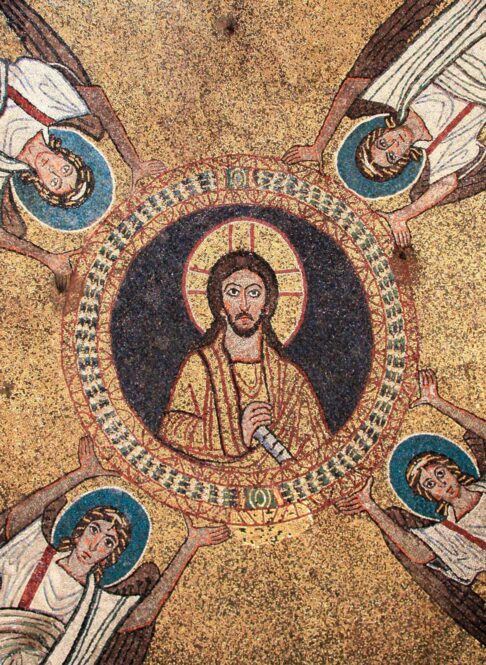
Patristic Theology
Is Jesus Christ a noble prophet, a divine creature, or God himself? If he is God, does he only appear human? If he is human, then how can he be God? What texts are to count as scripture, and what does it mean for them to be authoritative? Are there wrong answers to these questions? Is there some kind of criterion that regulates Christian discourse? If so, how should we handle disagreement and diversity? In order to get answers—or at least understand why we should even ask about such things—this course examines themes treated by the Church Fathers of roughly the first thousand years of Church History. The core of our study will be to discern how the Fathers understood and articulated what we take to be central teachings of Christianity, such as Christology, the person of Christ and his relation to God and the Spirit, and Soteriology, as seen in the historical arc of creation—fall—redemption. Related inquiries will include the formation of the biblical canon, the theology of human nature, spirituality, ascetic practice, the afterlife, ethics, and systematic theology. Finally, we will primarily engage the writings of the Church Fathers (hence the term patristics), focusing closely on each text’s context, methodology, argumentation, and overarching structure.